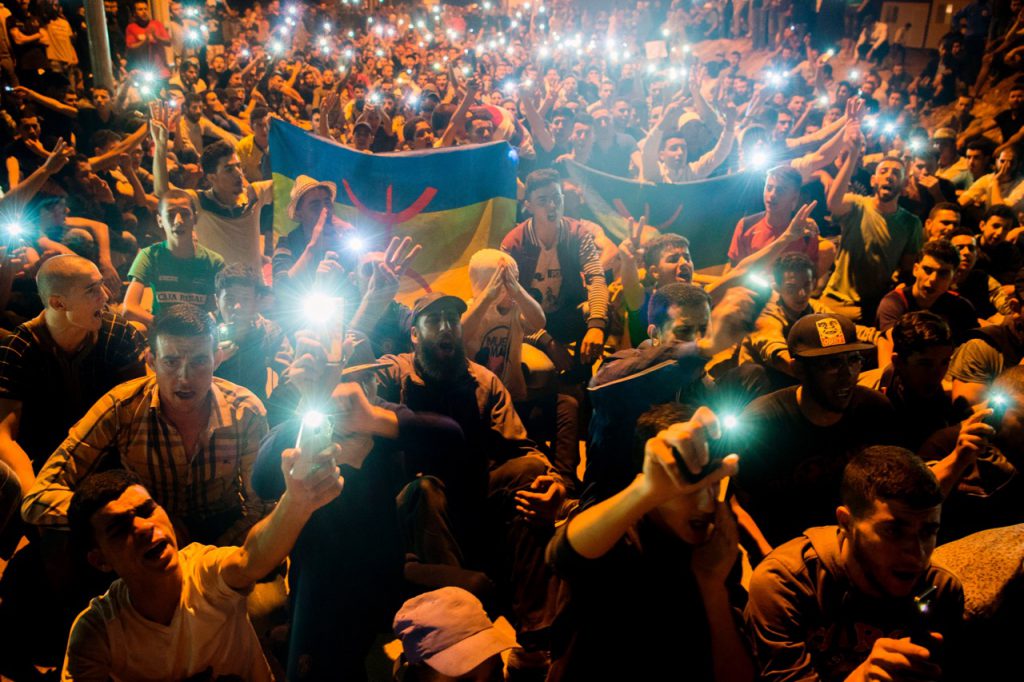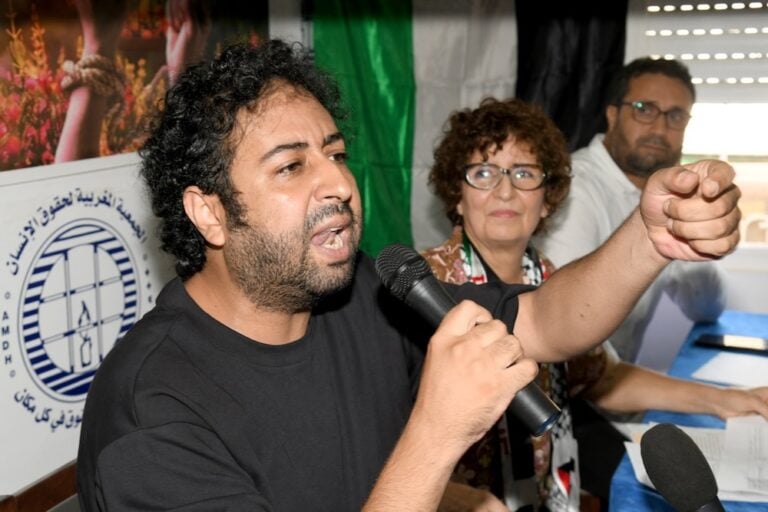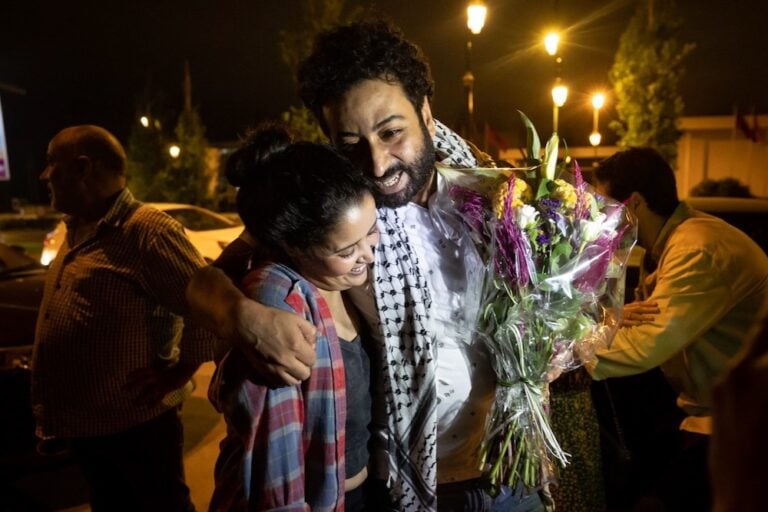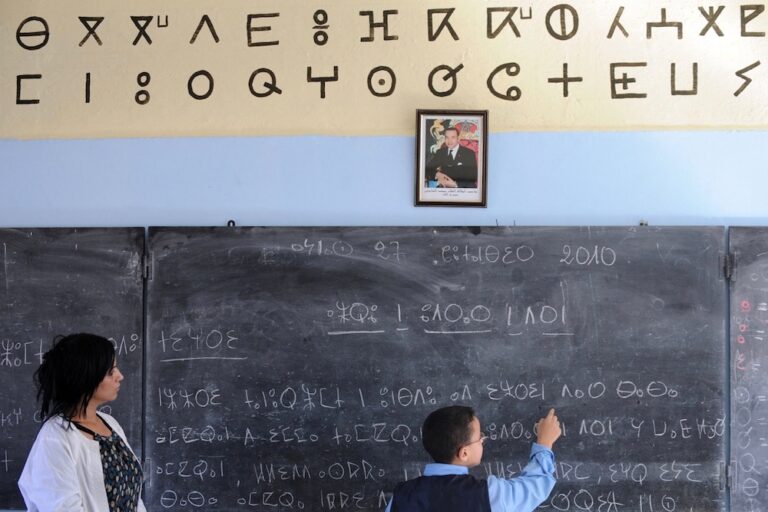Moroccan authorities are using a law designed to keep people from falsely claiming professional credentials to bring criminal charges against people trying to expose abuses.
This statement was originally published on hrw.org on 16 May 2019.
Moroccan authorities are using a law designed to keep people from falsely claiming professional credentials to bring criminal charges against people trying to expose abuses, Human Rights Watch said today.
In the latest case, Nezha Khalidi, who is affiliated with the activist group Equipe Media in El-Ayoun, Western Sahara, will go on trial on May 20, 2019, accused of not meeting the requirements to call herself a journalist. Police arrested her on December 4, 2018, as she was livestreaming on Facebook a street scene in Western Sahara and denouncing Moroccan “repression.” She faces two years in prison if convicted.
“People who speak out peacefully should never have to fear prison for ‘pretending’ to be journalists,” said Eric Goldstein, deputy Middle East and North Africa director at Human Rights Watch. “The authorities shouldn’t be using a law designed to keep an unqualified person from claiming to be a doctor, for example, to punish people whose commentary displeases them.” Article 381 of Morocco’s penal code forbids “claiming or using a title associated with a profession that is regulated by law … without meeting the necessary conditions to use it,” and subjects violators to a prison sentence of three months to two years.
Article 381, when it is used to restrict journalism, is incompatible with Morocco’s obligations under international human rights law to respect the right to seek, receive, and impart information and ideas, Human Rights Watch said.
Morocco’s Parliament should amend article 381 to exclude journalism, to ensure the rights of people to convey information and commentary freely.
The police released Khalidi after four hours on December 4, 2018, but confiscated the smartphone she had used to film a street scene, which ended with a policeman chasing her. On May 15, she told Human Rights Watch that she never got her smartphone back. The El-Ayoun Court of First Instance will judge her case.
In another case, in April 2019, Casablanca’s appeals court confirmed the conviction of at least two journalists for various charges, including usurping the title of journalist, after they published video reports about protests in the Rif region of northern Morocco, one of their lawyers, Bouchra Rouissi, told Human Rights Watch. The court sentenced Mohamed El Asrihi, the director of the news website Rif 24, to five years in prison, and Fouad Essaidi, the director of Facebook-based Awar TV, to three years.
El Asrihi and Essaidi did not have official journalism licenses – known in Morocco as “press cards” – and their platforms were not officially registered. According to a court document consulted by Human Rights Watch, El Asrihi was in the process of registering his website and requesting a press card when he was arrested. Rouissi said his arrest came soon after he filmed an attempt by the authorities to arrest protest leader Nasser Zefzafi in May 2017.
Article 19 of the International Covenant on Civil and Political Rights, ratified by Morocco, guarantees the right to freedom of expression. The Human Rights Committee, which interprets the treaty, has said clearly that “general State systems of registration or licensing of journalists” are incompatible with freedom of expression. In Morocco, press cards are delivered to national media journalists by a body, mostly made of journalists and publishers, established by a law passed in 2016. Registration of journalists imposed by law, no matter who operates the licensing process, is considered state registration, Human Rights Watch said.
Equipe Media is a collective of activists who openly embrace the cause of self-determination for Western Sahara, most of which has since the 1970s been under the de facto control of Morocco. The government considers it Moroccan territory and rejects demands for a vote on self-determination that would include independence as an option. The international community does not recognize Morocco’s de facto annexation of Western Sahara.
Authorities also arrested Khalidi in 2016, as she covered a women’s demonstration in El-Ayoun on behalf of Equipe Media. The authorities held her overnight and confiscated her camera and memory card, then released her without charge, she told Human Rights Watch.“Providing information, images, and commentary without official accreditation should not be criminalized the way practicing medicine or driving a truck without a license should be,” Goldstein said.



